Driving value in the drinks industry
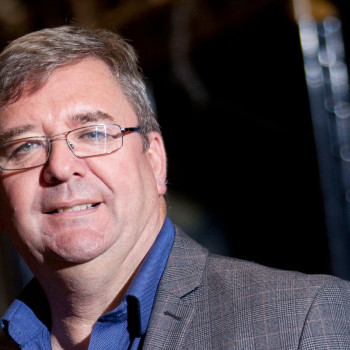
Charley Stoney, managing director of the Alternatives Group, speaks to Pat Magee, managing director of Irish Distillers Pernod Ricard to find out how the drinks industry is faring in these challenging times
17 June 2015
Pat Magee’s career path was always sales-focused despite completing a marketing degree at night while at Reckitt and Colman (now Reckitt Benckiser) early on in order expand his knowledge. His first national account manager (NAM) position came about when that type of role was still at an early stage of development but it quickly clarified for him that what he really wanted to do was to work with people. As NAMs have to bring the sales team with them, he focused on his people skills, getting in front of the team regularly and thus gained confidence in his ability to lead, and he has managed teams ever since.
McGee finished up as general manager of Reckitt and Colman in Ireland and then took a year out for an MBA. He explains where he went from there. “Following this I set up my own business, a stationery and book shop in Cork; Reads of Patrick Street. It was a great experience –fundamentally enjoyable and although the first year was challenging, the business took off in the second year. We ran it for five years and then got an offer from Easons to buy us out. I moved back into corporate life and joined Irish Distillers (IDL) as retail sales director.”
This background gave McGee a good understanding of the retailers and independent pub owners that IDL deals with on a daily basis. “I can understand the pressure of managing a retail business and dealing with consumers,” he says. “It was also great training for managing the financial detail of how a business operates and I find that has given me the ability to apply forensic attention to detail for the much larger P&L responsibility I have today.”
What does it take to be a leader today when working in such a fast-paced environment means we don’t have the time we’d like for reflection and development?
“First of all, you need to stand back and have a clear strategy. Work out what the clear pillars and tactics are below that. Then ensure that you get your team behind that strategy,” he says.
For McGee, what’s necessary in today’s environment is a willingness to change yourself and your approach and to recognise when you need to make a change before it’s too late. Anyone who isn’t willing to change will fall by the wayside. This is why a strong, focused strategy is so important for him, as without this, decisions get made in isolation.
Irish Distillers underwent a major restructure last year so it’s now a very tight team, which by definition has to be good: “We’re still on a journey: the focus is on communication and encouragement to make sure the team has the right frame of mind for the collaboration and team-thinking that we encourage and is critical for business success.”
IDL has invested significantly in training managers to work cross-functionally as well as managing people. McGee thinks that Irish managers need to increasingly develop their emotional intelligence skills. He believes that if Irish leaders are to engage with the next generation of potential managers then it needs to be made a priority.
The international side of Irish Distillers’ business has one of the most successful graduate programmes in the country which means that in areas like marketing and sales, they have direct access to the new millennials expectations of their future career. This new generation is hugely different to the older generation. “They want to get the most out of their career but won’t stay for longevity’s sake, so managers have to think about not only where they fit in the organisation now, but also help them to see the potential diversity of their career journey within Pernod-Ricard. If managers don’t engage in this way, then this talent can be lost as they’re quite happy to move to other companies at home or abroad for the right opportunities.”
Describe the challenges you’ve faced over the past few years in your industry and how you and your team are managing them?
“It’s been exceptionally tough. Like everybody else, we had the challenges of the downturn and then the drinks industry was hit twice by two subsequent duty increases. To put some numbers on it, the spirits category in Ireland was recovering in early 2012 and then, following the first duty increase in December 2013, it declined by 9% and with the second increase in October 2013, it declined by a further 9%.”
In addition, the spirits and wine business has had to adjust to the rise of the discounters as well as the continued reversal of consumption from on-trade to off-trade. Currently, 30% of IDL’s volume goes through the on-trade (pubs, bars, nightclubs) with 70% coming through retail (off-trade) whereas only 12 years ago it was the complete opposite.
Irish Distillers is a brand-building company though, so while they remain competitive, they don’t believe in leading the discounting. Even during the downturn they continued to invest behind the brands. There were times when this strategy was incredibly difficult, particularly at the height of the recession so it was very tough for the sales people on the front line, but they stayed focused on the strategy and now they’re starting to see some good results. Jameson is out-performing the market with a new consumer profile, and Absolut Vodka, Cork Dry Gin and Havana Club continue to perform well in both the on and off-trade.
McGee is hoping that we’re now seeing the end of the on-trade’s decline although he thinks there are probably still too many pubs for the size of the market so there is some consolidation left to do. However, because it’s the place for direct engagement with the consumer, the on-trade is still hugely important to the future of the drinks category, as brand-building (with responsible consumer engagement) can only really happen in this environment.
“We need a strong on-trade, and I’m not just saying that from a drinks industry perspective but also from a more general perspective for Ireland Inc. We can never forget the attraction of the pub for our tourism industry and its importance for rural communities, it’s a really strong asset that needs to be managed properly and to my mind it needs protecting,” he says.
The drinks industry is still very important to Ireland: approximately € 1.1bn worth of product is bought annually from Irish suppliers, and over 90,000 people are employed here either directly or indirectly within the industry. McGee agrees that we definitely need to address the social issues resulting from irresponsible drinking but he also advocates increased support for the industry from an Ireland Inc. viewpoint.
What are your strategies for future growth?
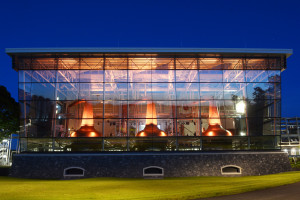
Currently, 30% of IDL’s volume goes through the on-trade (pubs, bars, nightclubs) with 70% coming through retail (off-trade) whereas only 12 years ago it was the complete opposite
Irish Distillers is championing the stabilisation (and ultimately revival) of the spirits and wine categories by working with retailers and pub owners to bring value growth back. IDL continues to lead in-category development and is investing in understanding consumer insights both in the on-trade environment and in retail, to find new ways of growing their business. They are pursuing an equal mix of off and on-trade initiatives across the business, but believe in driving value not volume – as they continue to focus on telling rich brand stories.
The Irish whiskey story is very exciting across the globe. It is the fastest growing spirit category in the world and has enjoyed over 20 consecutive years of growth lead by Jameson. At Midleton they have just doubled the size of the distillery and now employ 560 staff in Ireland. At the newly opened Irish Whiskey Academy there – used by both Pernod Ricard global and Irish customers – courses are run on the whiskey-making process. The development of an in-depth knowledge and understanding about the category among bar tenders and off-licence managers has helped develop strong growth for premium whiskeys even with the difficult trading conditions in Ireland.
How has brand-building in the drinks industry, especially for spirits, changed over the years?
“It has always taken a long time to build a successful spirit brand. Nowadays it’s not just about creating a TV advert (something we are not allowed do for spirit brands in Ireland anymore) which might last a couple of years. You must also create unique and relevant content online and keep it fresh. It can be more cost effective but the internal time and resources that go into it far exceed that of a traditional advertising campaign.”
At Midleton there is now a full time professionally trained archivist who collates the history of the many famous whiskey brands that are distilled there. This provides a huge amount of content which IDL has developed and formatted to bring online to help educate consumers and explain Jameson and Midleton’s place in the history of Irish whiskey-making.
McGee and his team are developing a new spirit brand in the on-trade, Zaconey, which is a bourbon-based spirit drink. Again this will need commitment over a number of years as the spirits category has many successful brands that are a 10-12 year “overnight success”.
What advice would you give to someone starting out in sales today?
McGee advises developing broad business acumen very early on. “Sales people must understand that they’re dealing with owners who need to talk to people who understand their business and will help jointly drive it.” He’s adamant that listening and learning from the people you work with every day will teach you a lot about how to run a business yourself. “It’s a commercial role, not just about making sales, so you need to bring business solutions to your customers, not just products.
“The other key piece of advice I’d give anyone, is to remain curious. If you lose your curiosity, you lose your drive and your need to develop,” he explains. “Equally, the founder of Ricard, Paul Ricard had a saying which was “make a friend every day!” This typifies the Pernod-Ricard philosophy and it’s one I really buy into. Relationships are very important.”
McGee thinks it’s fundamental that a business doesn’t become too self-sufficient and sees the value in looking externally for fresh thinking. He has had very positive experiences of bringing in outside talent and mixing it with talent developed within the business during his career and in partnering with a talent solutions business such as Alternatives. “For me, getting the cultural fit right is key, finding the right partner to work with who understands our culture, who knows the business extremely well and is flexible about how we can access their talent pool, is essential.”
To access the talent you require and to better understand what millennials need from their careers, please speak to Charley Stoney on 01-661-8889 or cstoney@alternatives.ie.



 Print
Print
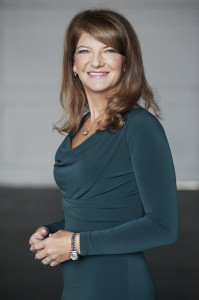
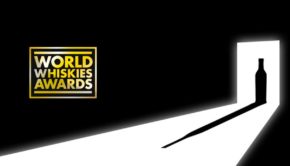
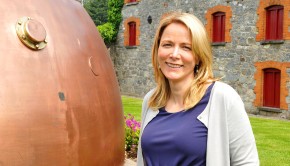


Fans 0
Followers